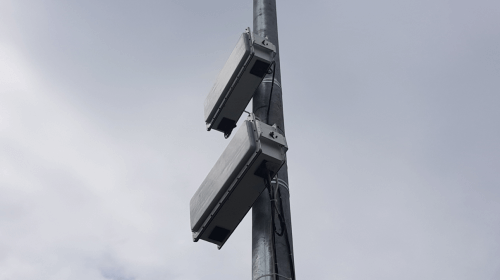The Republic of Rwanda is situated in Central and East Africa and is one of the smallest on the African mainland. Bordered by Uganda, Tanzania, Burundi and DRC, Rwanda is a highly elevated country with mountains in the west, savanna to the east and numerous lakes. The population of over 11,800,000 is young and the majority live in outside of towns and cities. In fact 90% of Rwandans live in rural areas. The population is also very dense for such a small country.
Rwanda has experienced a turbulent recent past, which had an effect on its economic state. However, it is now getting stronger and gradually recovering although the economy is very much based upon subsistence agriculture which largely relies upon basic farming techniques. The land is very fertile due to its high altitudes, steep slopes and volcanic soil, and is ideal for growing tea and coffee, which are major cash crops for export. The industrial sector in Rwanda is small but features beverages, soap, furniture, plastic goods, textiles and cigarettes. The mining of coltan is also a growing sector and the mineral is used in mobile phones and other communications devices. Tourism is also a growing sector in Rwanda and mountain gorilla tracking is the most popular attraction as well as the Nyungwe Forest, where there are chimpanzees.
The state of communications in Rwanda is subject to improvement. Internet penetration is at around 12.4% and Internet access is restricted largely to Kigali, the capital, though access to bandwidth is becoming available via submarine cables. However, fixed line infrastructure is in need of development and therefore mobile phones have become the favoured means of accessing the Internet.
Reaching Rural Communities
With the majority of Rwandans living in remote areas, prospects for the delivery of broadband connectivity via satellite are very strong. With underdeveloped fixed line infrastructure making it almost impossible to reach remote communities, VSAT networks can fill these considerable gaps in communications and provide rich services for the communities that need them from basic voice connectivity to Internet access. These applications will help from the ground up, giving Rwandans the ability to learn about how they may improve their farming techniques to maximise crop yields and access advice on critical things such as better fertilisers. It is this kind of information that can enable them to improve their overall quality of life. In addition, access to financial services via mobile money applications.
LTE access is growing across Rwanda but large areas are still unconnected. Mobile Network Operators can benefit from the use of VSAT networks to enable the backhaul of mobile traffic over satellite. This means that they can extend their footprint without the large cost implications associated with the construction of cell towers in remote regions of the country.
BusinessCom Networks can address all of these connectivity challenges through its comprehensive VSAT service offerings that cover the entire spectrum of customer requirements, from business right the way through to individual consumers. Our highly trained technicians are on the ground in Rwanda to install and configure your network and to help to make the very best of the BusinessCom service.
Key features
Key differentiators of BusinessCom VSAT services in Rwanda are:
- Broadband Internet access
- Toll quality VoIP and Videoconferencing with CIR
- Reliable SLA through FDMA and D-TDMA
- Star, Mesh and hybrid Star/Mesh topology networks
- Full support of accelerated VPN, CITRIX, ERM and other business applications
- Highly secure operation with optional AES embedded encryption
- Global C-Band coverage and sub-Sahara Ku-Band
- Landing at top tier redundant IP facilities in Western Europe and United States
- Sentinel-based QoS, bandwidth management and optimization platform





